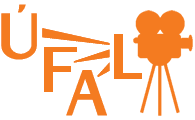Enhancing Universal Dependencies
Speaker:
Joakim Nivre
Abstract:
Universal Dependencies (UD) is a framework for cross-linguistically consistent morphosyntactic annotation that has so far been applied to over 60 languages. The annotation includes a morphological layer, with part-of-speech tags and morphological features, and a syntactic layer consisting of dependency relations. The syntactic annotation comes in two versions: a basic representation, where words are connected by syntactic relations into a dependency tree, and an enhanced representation, which is a richer graph structure that adds external subject relations, shared dependents in coordination, and predicate-argument relations in elliptical constructions, among other things. In this talk, I will first explain the principles of the enhanced syntactic representation and review the current UD guidelines. I will then report on recent work that try to automate the prediction of enhanced dependencies, given the basic representation, using both rule-based and data-driven approaches.
Length:
01:19:46
Date:
09/04/2018


